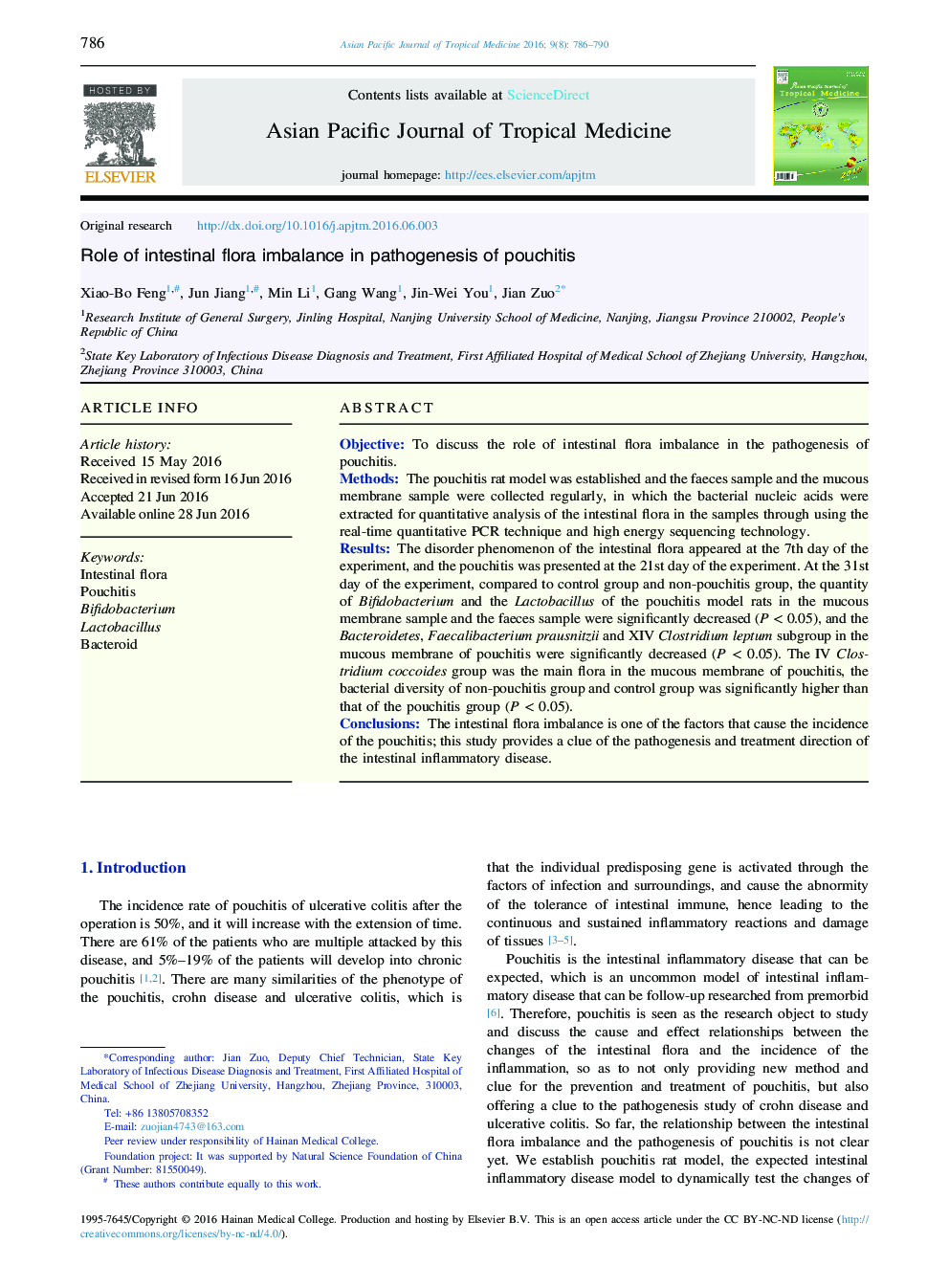| Article ID | Journal | Published Year | Pages | File Type |
|---|---|---|---|---|
| 3455146 | Asian Pacific Journal of Tropical Medicine | 2016 | 5 Pages |
ObjectiveTo discuss the role of intestinal flora imbalance in the pathogenesis of pouchitis.MethodsThe pouchitis rat model was established and the faeces sample and the mucous membrane sample were collected regularly, in which the bacterial nucleic acids were extracted for quantitative analysis of the intestinal flora in the samples through using the real-time quantitative PCR technique and high energy sequencing technology.ResultsThe disorder phenomenon of the intestinal flora appeared at the 7th day of the experiment, and the pouchitis was presented at the 21st day of the experiment. At the 31st day of the experiment, compared to control group and non-pouchitis group, the quantity of Bifidobacterium and the Lactobacillus of the pouchitis model rats in the mucous membrane sample and the faeces sample were significantly decreased (P < 0.05), and the Bacteroidetes, Faecalibacterium prausnitzii and XIV Clostridium leptum subgroup in the mucous membrane of pouchitis were significantly decreased (P < 0.05). The IV Clostridium coccoides group was the main flora in the mucous membrane of pouchitis, the bacterial diversity of non-pouchitis group and control group was significantly higher than that of the pouchitis group (P < 0.05).ConclusionsThe intestinal flora imbalance is one of the factors that cause the incidence of the pouchitis; this study provides a clue of the pathogenesis and treatment direction of the intestinal inflammatory disease.
